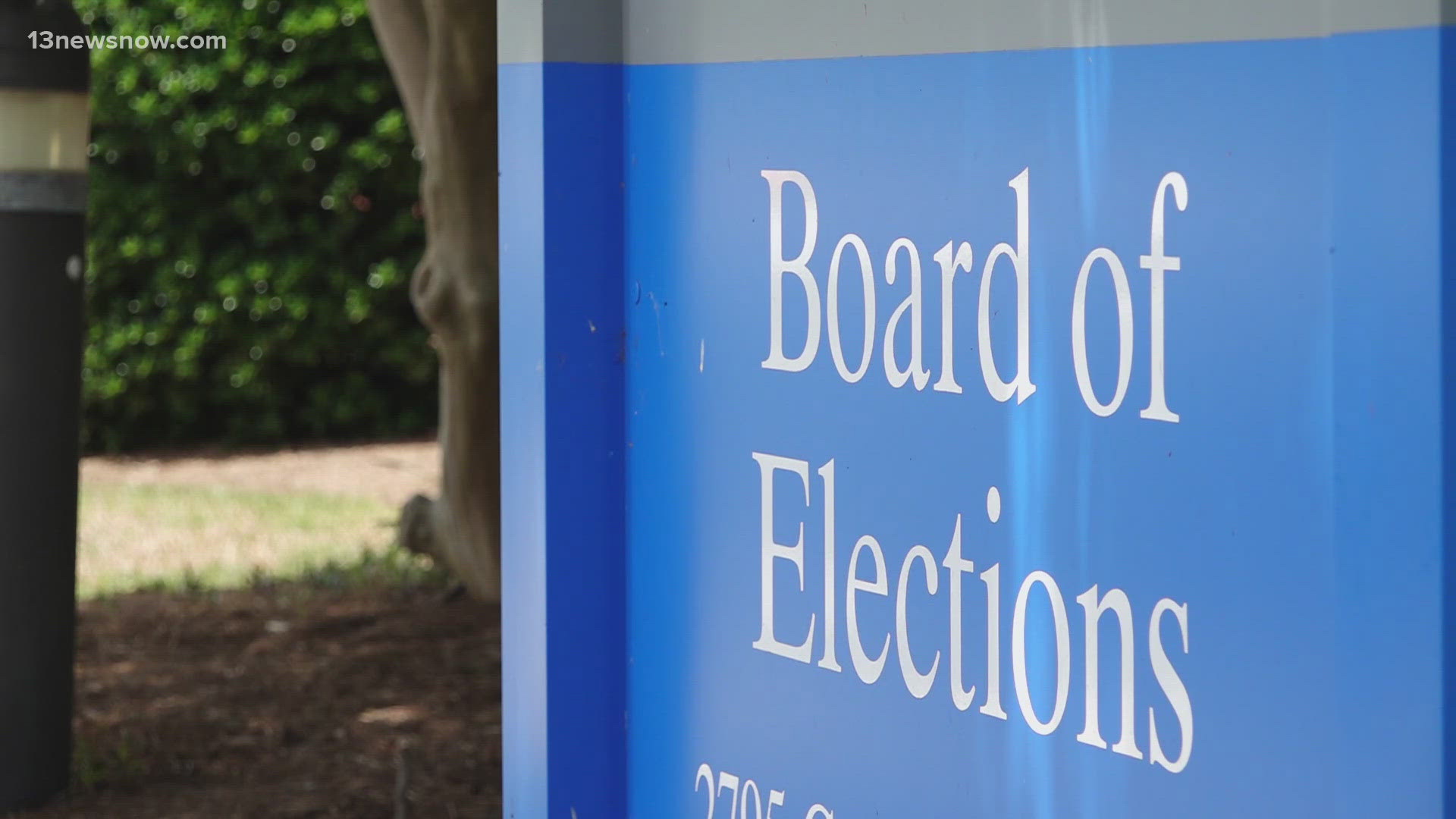NORTH CAROLINA, USA — North Carolina held a primary election back in March for dozens of races, including for President, but a few of them are heading to a runoff on May 14.
Voters are choosing this fall's Republican nominees for lieutenant governor and state auditor.
These May 14 runoffs, also known as "second primaries," are taking place because the candidate with the most votes in the March 5 primaries for these races failed to receive more than 30% of the vote. The second-place candidate had to formally ask for a runoff.
Here's everything you need to know about voting in North Carolina's May 14, 2024 runoff primary elections: dates, voter ID rules, voter registration, who's on the ballot, and more.
Who's on the May 2024 North Carolina primary ballot?
The lieutenant governor's GOP runoff is between Hal Weatherman and Jim O’Neill, while the nomination for state auditor is between Jack Clark and Dave Boliek. The winners will face Democratic rivals — and in some cases Libertarian Party candidates — in November's general election.
Additionally, there is a Republican runoff election in the 13th Congressional District between Kelly Daughtry and Brad Knott. However, Daughtry suspended her campaign on May 2. She will remain an official candidate and her name will remain on the ballot, suspending the campaign.
RELATED: "Light" vote turnout anticipated for North Carolina's second primary races. Here's what to know
These GOP primary runoffs are open to all registered Republicans in the state, or in the case of the congressional race, registered Republicans within the 13th District.
Unaffiliated voters who either didn’t vote or voted Republican in the March primaries also can participate, the State Board of Elections said in a news release.
Dates, voter deadlines, and rules
- March 30: County boards of elections begin mailing absentee ballots to eligible voters who submitted an absentee ballot request form.
- April 25: In-person early voting begins.
- May 7: Absentee ballot request deadline (5 p.m.) *
- May 11: In-person early voting ends (3 p.m.)
- May 14: Election Day
- May 14: Absentee ballot return deadline (7:30 p.m.)*
*Voter registration and absentee voting deadlines are different for military and overseas citizen voters.
Early Voting
In-person early voting began Thursday, April 25, and ends at 3 p.m. on Saturday, May 11 for all 100 counties in North Carolina. Generally, most counties have just one early-vote site for the runoffs.
Voters can look up early voting locations online. Locations and voting hours are also available as a PDF on North Carolina's Board of Elections website.
Same-day registration is unavailable during early voting because the registration of new voters is not permitted between the first and second primaries. But people who become eligible to vote during the two primaries can both register and vote on May 14, the state board said.
Voter ID rules
People will be asked to show a photo ID when voting in North Carolina, but all voters can vote without one, according to the North Carolina State Board of Elections.
If a voter can't show a photo ID when voting in person, they can still vote by filling out an ID exception form. If absentee-by-mail voters can't include a copy of their photo ID with a ballot return envelope, they can fill out an ID exception form with their ballot.
Acceptable types of photo IDs include a North Carolina driver’s license, U.S. passport, and college or university student ID. People can also get a free ID card from their county board of elections or the North Carolina Division of Motor Vehicles.
North Carolina voter registration: How to check your status
The North Carolina State Board of Elections has a voter search tool that includes voting jurisdictions, polling places, sample ballots when available, absentee ballot information, and voter history.
Where do I vote? Here's how to find your polling location in North Carolina
To find where to vote in North Carolina, use the North Carolina State Board of Elections' polling place search tool. It will ask for your residential address, city, state, and ZIP code.
Where to find sample ballots
Use the North Carolina State Board of Elections voter search tool that includes voting jurisdictions, polling places, sample ballots when available, absentee ballot information, and voter history.
Where can I see election results?
Visit 13News Now's Election Results page on the night of May 14 to see live results after the polls close at 7:30 p.m.
The Associated Press contributed to this report.

